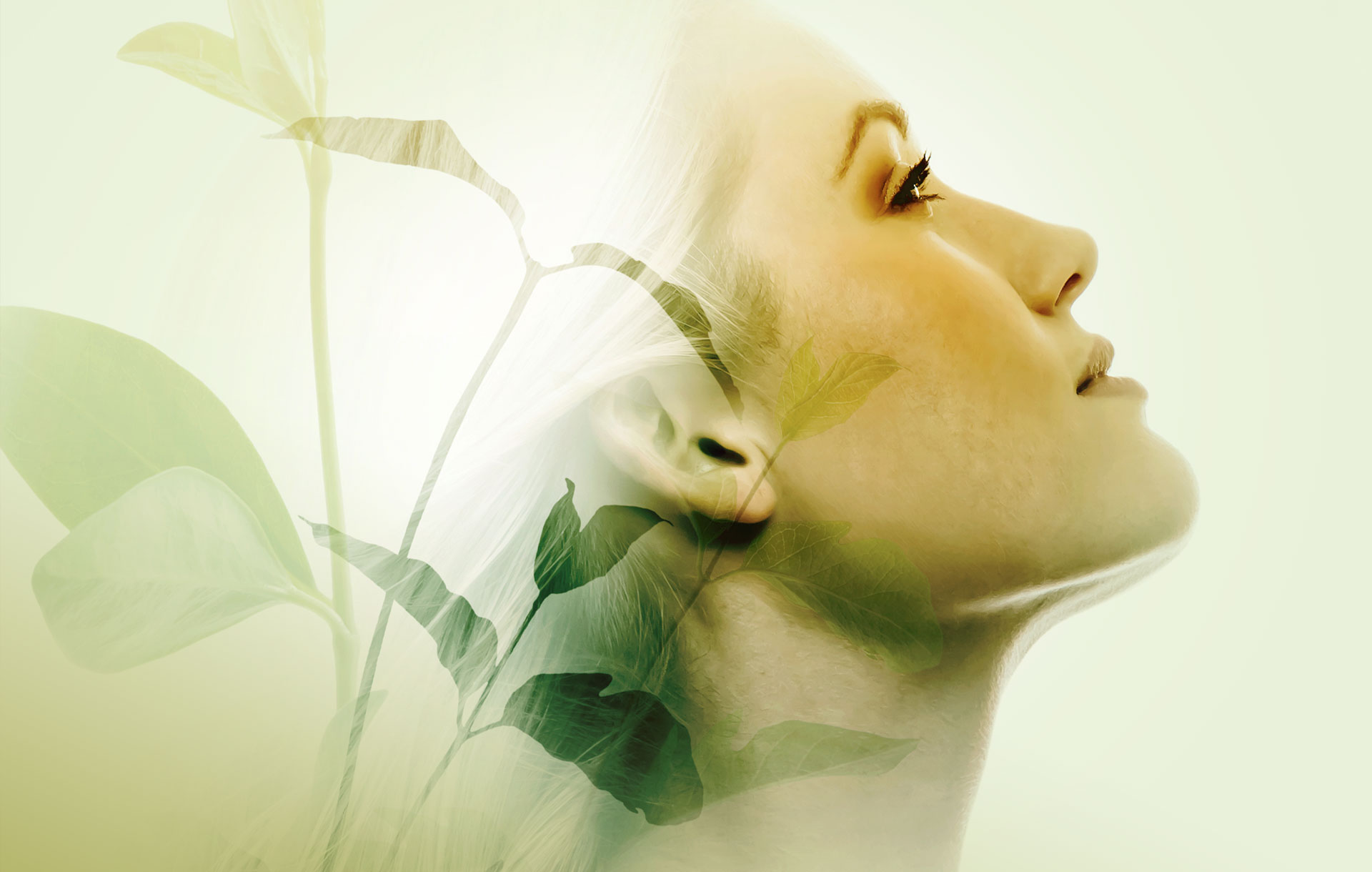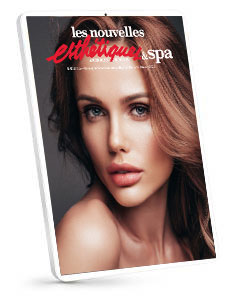
Personal Care with the Intention of Emotional Balance
There is a well known emotional component to cosmetics and personal care. Ask any skin care practitioner, cosmetic manufacturer, woman or beauty aware male about their recognition of cosmetic emotional benefits. Most are fairly certain of, make a living from, and are supported by studies that make evident the emotional benefit of personal care products. The emotional impact, in some ways, has always been a driver of this multi-billion dollar industry. With this in mind, a more intentional emotional outcome may be built into the use of personal care products.
For the most part, the conversation around the emotional impact of cosmetics is focused on confidence or self-esteem and the feelings created by the use of the products. This would include the emotion created by the visual and tactile feel of the product. Emotional response is also influenced by and in a way generated by the branding and marketing of the product. It begins with an “idea” or perceived emotion that is communicated and placed into the mind of the consumer through verbal or visual transmission, i.e. advertising and promotion.
The biology of emotions
To build the concept of emotionally driven products, there’s an important link that is best expressed by Nancy Etcoff, a Harvard Psychologist, in her 2004 TED talk; “We tend to think of emotions as just feelings. But in fact emotions are an all systems alert that change what we remember, what kind of decisions we make, and how we perceive things.” The key take away here is to be aware of the innate influence biology has on emotions, behavior and beauty.
Human connection to nature
In a way, biology is the focus of this article. How to create truly emotional skin care using the deepest connections of who we are in nature. Dr. Etcoff identifies a biological connection to nature that leads us to the development of influential and emotionally driven skin care. “Our pleasures are really ancient. . . many of them are base. . . and one of them is biophillia,” a term suggesting that humans have an inborn tendency to seek connections with nature. As an example of the profound human response to the natural world, Dr. Etcoff talks of a study where, following surgery, the people who saw trees and nature, as compared to those who looked at a brick wall, had fewer complications, required less medication and remained in the hospital for a shorter period of time.
For many, the modern lifestyle, especially of urban and suburban dwellers, is a disconnect from nature, with all the emotional and physical imbalance that goes with it. Many studies conducted show the restorative health and emotional impact of using nature as a stress reliever and builder of emotional and physical health. ,
Essential oils are an excellent resource to reestablish the nature connection. It’s helpful to understand that humans evolved with essential oils saturating the atmosphere, which further solidifies the human connection to essential oils, and their logical everyday use. Essential oil terpene molecules saturate any area having plant density, such as fields, parks and forests. The use of essential oils and their terpene composition, wearing on the skin or diffusing the atmosphere, stimulates the connection to, and the emotional stability, of nature.
Nature connection made with plant based ingredients
What does this mean in relation to cosmetics and personal care products? It must be obvious by now that the suggestion will be the priority of plant-based ingredients for emotionally driven products. The biological connection to nature could be used to support the current market growth and demand for natural and organics in personal care. It should not be dismissed, or discouraged, that the growing interest in naturals may also be due to the affect on emotions of marketing a perceived safety and efficacy of natural ingredients.
Emotional pharmacology of essential oils
The use of essential oils in personal care takes the biological and physiological impact to another level unmatched by any other ingredient. Essential oils are well documented for their use in relieving stress and anxiety, uplifting mood, and having overall profound emotional uses. This is a truly physical and biological reaction, mostly produced through the inhalation and olfactory limbic system response. These would include GABAergic effects, mimicking the feel good or relaxing effect of this neurotransmitter, as well as essential oils relationship to dopamine and other messenger molecules associated with behavior and emotional health. Empirical evidence and common knowledge has long supported the emotional use of essential oils.
Memory and the emotional function of smell
Scent, through olfaction, has powerful influence on our moods and behavior. A significant factor is the association between a fragrance and the memory/emotion connection. Every memory and every emotion has a scent attachment. Some can be quite profound as when a vivid, streaming-like, memory is triggered by a fragrance. This is a biologically engrained survival function that directs us to those things that are beneficial, like food or sex, and those things that are dangerous, such as food gone bad or a gas leak. This relates to all fragrances, not just essential oils. A product with a familiar odor having a positive memory association, even if unrecognized as familiar, will trigger the feel good emotion associated with the memory. Citrus aromas tend to be uplifting and joyful to most people. This is assumed to be due to the happy association with citruses forged as emotional memories when children.
Scent memory, human evolution and the chemistry of essential oils
Fragrance and scent branding is a highly influential aspect to marketing. Walk in a mall and smell your way to familiar stores, or identify a familiar product by scent alone, and you can easily understand the relationship of olfactory memory and anticipated behavior. Most scent branding used commercially is perfume or synthetic fragrances. Essential oils take this practice one step further by their chemical structure having the additional biological, pharmaceutical-like, response in the brain and body.
Using the known emotional properties of essential oils in combination with the understanding of olfaction, incorporated into a true natural ingredient base, will result in emotionally charged skin care. It’s the essential oils that create specific, and highly effective, results in emotional adjustment and balance.
The emotional skin care ingredient choices
Let’s put this together into a system of emotional skin care. The natural base is designed for therapeutic focus, application of the product and the emotionally related tactile aspect of the product. These include hydrosols used as toners, and the fixed oils and butters, recommended to be unrefined or partially refined organics, such as sunflower, shea butter, rosehip, cranberry, jojoba and any of the many other choices that continually become available. Flower essences, extracts providing the energetic or life force properties of plants and flowers, are also influential emotionally stabilizing ingredients.
All of these ingredients, including essential oils, can be formulated to a specific skin type and an active, corrective function. The holistic capabilities of essential oils and other plant based remedies allows for action on all levels, emotional and physical needs. Existing plant based essential oil products may be evaluated for potential emotional benefit even if this isn’t included in the marketing. The result will be dependent upon the actual ingredient quality, or lack thereof.
Emotional skin care with essential oils
Here’s how a moisturizer for aging or damaged skin, using any combination of the previously mentioned botanicals, all with potential healthy aging properties, can be structured for identified emotional intention.
Using one healthy aging base, several different formulas may be created with a different combination of essential oils. Each essential oil listed has properties to address the skin type or purpose of the formula, in this case aging or damaged skin. This example also demonstrates a basis for customizing a service or retail.
Soothe
- Atlas Cedarwood (Cedrus atlantica)
- White Champa Leaf (Michelia alba)
- Geranium (Pelargonium asperum)
- Ylang Ylang (Cananga odorata)
Vitality
- Australian Sandalwood (Santalum spicatum)
- Carrot Seed (Daucus carota)
- Rosemary CT Verbenone (Rosmarinus officinalis)
- Rose (Rosa damascena)
Confidence
- Buddha Wood (Eremophila mitchellii)
- Jasmine (Jasminum grandiflorum)
- Cape Snowbush (Eriocephalus africanus)
- Neroli (Citrus aurantium)
These basic and simplistic examples are to show the ability to address a variety of emotions, along with the diverse selection of holistic essential oils that are available.
The potential of emotional skin care
The opportunity to address emotions in skin care is truly holistic. Emotional imbalance is a principal cause of many skin conditions. If the emotions are not addressed in treatment, the condition may not be resolved. This is an area of personal care that could be the solution to so many difficult to treat or unresolved skin conditions, as well as other areas of health and wellness.
A skilled botanical formulator with a “nose” for artfully fusing essential oils with therapeutic function and olfactory awareness, has the ability to develop profound emotionally charged personal care and skin care products.












